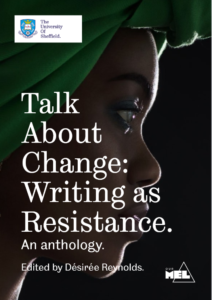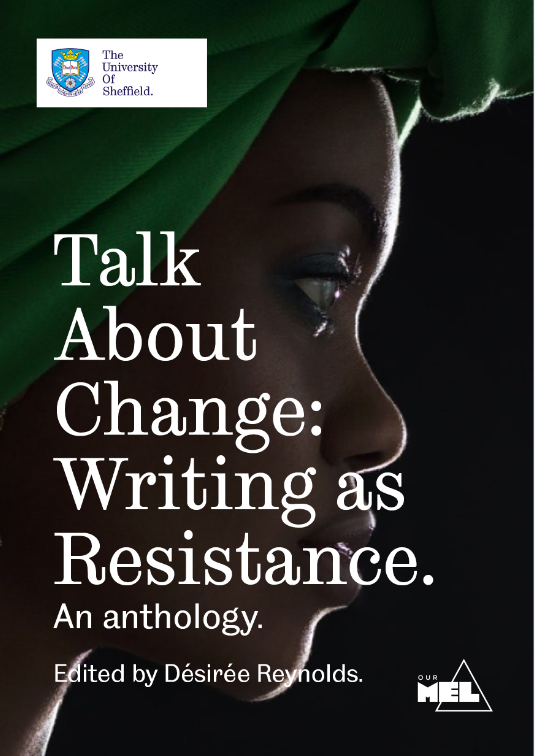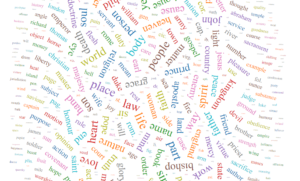Last weekend, Linguistic DNA & friends took over the Spiegeltent in Sheffield city centre, as part of the University’s Festival of the Mind. Spiegeltents are a Belgian invention–tents decorated internally with mirrors, creating the perfect space to share myriad reflections.
Over the course of two hours, we hosted a performance of new writing that emerged from collaboration with Our Mel (a Sheffield-based social enterprise dedicated to exploring cultural identity) and novelist Désirée Reynolds. Each of the pieces performed have also been published as part of a limited edition anthology: “Talk About Change: Writing as Resistance”.
The Researchers’ Introduction outlines a little more of the process that culminated in some extraordinary writing (excerpted from the print anthology):
Talk About Change: Writing as Resistance
Funded by the University of Sheffield’s Festival of the Mind, our collaborative workshops used examples of early modern word use (from the Linguistic DNA project and related research) as a starting point to think about language use today. How can the past speak to the present? How might the present speak to the past
As reflected in the structure of this anthology, the workshops explored four central themes: diversity, feminism, immigration and race. These were selected by Annalisa and Désirée, who also provided the extra focus on “writing as resistance”. In each case, the Linguistic DNA researchers sought to introduce historic material that might prompt conversation about the themes—and perhaps even fuel the resistance. Some input drew on prior research (especially for feminism and immigration sessions, which drew on Iona’s thesis and engaged also with the 500 Reformations project). As often, it was a basic excursion into early modern material—with a beginners’ introduction to linguistics and studying meaning (courtesy of Seth)
The most inventive work happened when we brought this material into the open sessions
Together with all who attended the workshops, we compared the role of diversity in historic texts to its position in modern culture: what once characterised a multiplicity of opinion is now used paradoxically of something individual. We considered aspects of feminist debate before the word feminism existed, exploring how the power of virtue changed as men (mostly) discussed the role of women in sixteenth-century England. Using texts about strangers, we examined parallels between the way people wrote (and complained) about early modern outsiders and modern discourse about immigrants. We reflected on the roots of race, its links to kinship, descent, and community and the relationship between structures of language and structures of power.
In each session, novelist and creative-writing facilitator Désirée Reynolds recommended other writings to bring out different dimensions of the themes. Wide reading was encouraged, and what you will find in the pages that follow reflects the careful crafting of a range of experience and inspiration drawing on at least five centuries of language use.
 It is Writing as Resistance.
It is Writing as Resistance.
It comes from Talking About Change.
If you would like a copy of the anthology (free!), you can register interest (first come, first served) by filling out a short Google form.
(You can also read some words from the Editor, over on the 500 Reformations website.)

